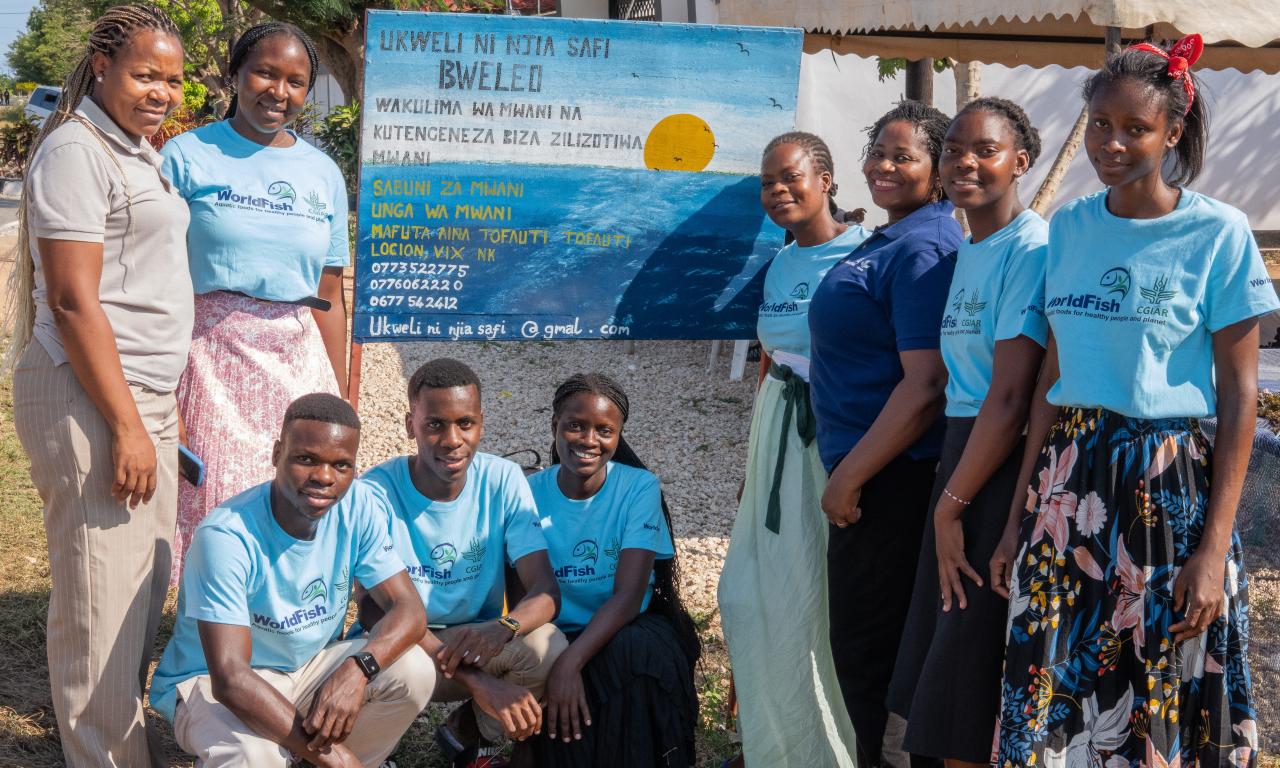
Seven youth and women from the Tany Cooperative, based on Inhaca Island off the coast of Maputo Bay, Mozambique, participated in a six-day learning visit to Zanzibar, Tanzania from September 14-19, 2025. The learning visit, organized by Asia–Africa BlueTech SuperHighway (AABS) project as part of its South-South collaboration activities, aimed to strengthen the capacity of the cooperative members in seaweed post-harvest management and marketing of products through hands-on learning and exposure to successful experiences of seaweed farmers in Zanzibar.
For the Tany cooperative members, cultivating seaweed has been an innovative experience as part of Mozambique’s initiative to introduce new streams of income for the coastal communities challenged with limited job opportunities. The members have begun producing fast-growing seaweed species but turning it into income has remained elusive.
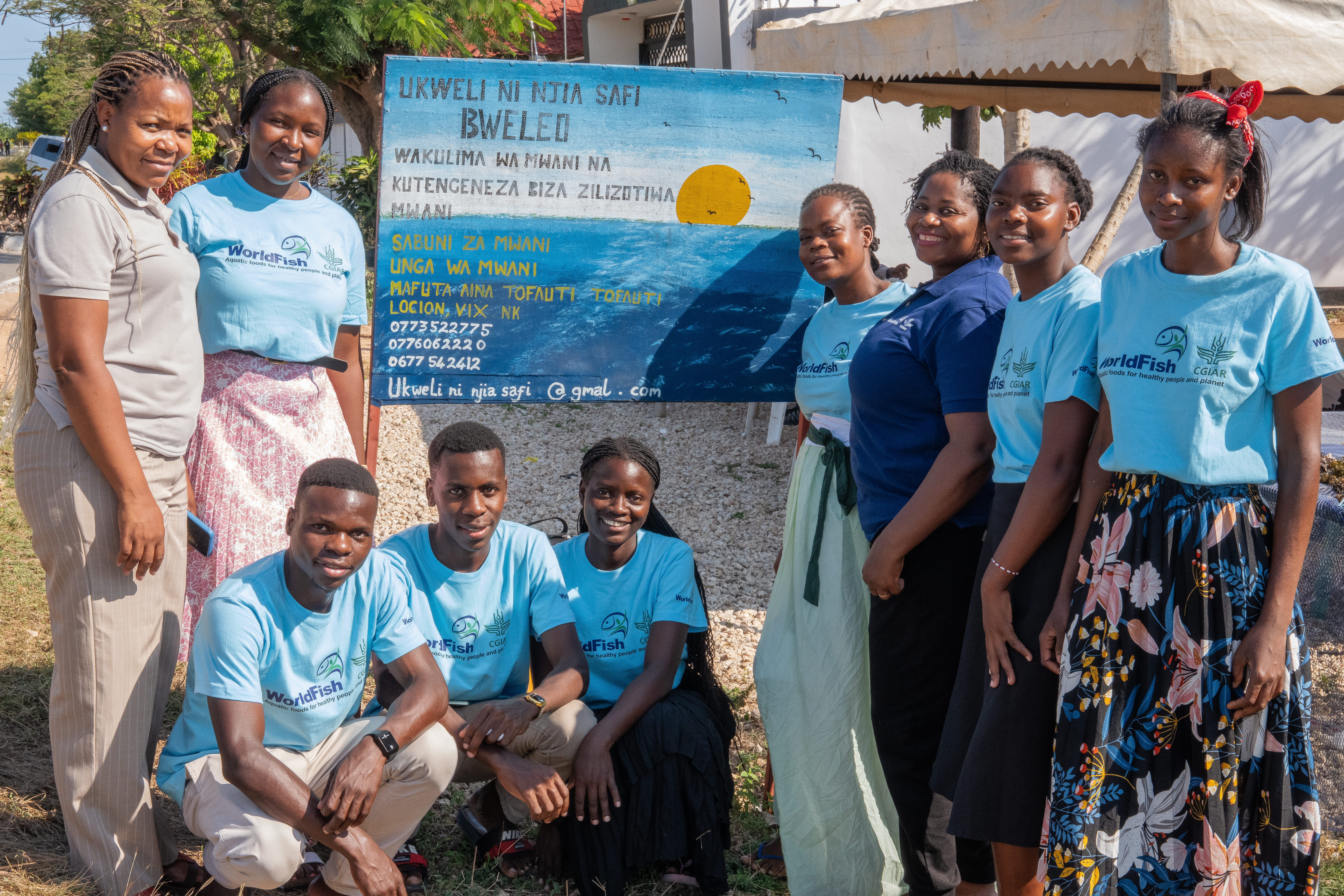
Zanzibar’s seaweed production and market have a women representation of nearly 88 percent, making seaweed cultivation a powerful catalyst for gender-inclusive development. The success with seaweed is visible in Zanzibar’s growing momentum around value-added processing, such as crafting soaps, cosmetics, and medicinal products—a vibrant value chain for the women and youth of Inhaca cooperative to learn from.
Over six days, the cooperative members learned from Zanzibar's seaweed processing techniques for both food and cosmetics, alongside receiving training ranging from advanced farming methods and post-harvest techniques to women’s leadership, marketing strategies, and cooperative management.
Building Capacity in Seaweed Product
Participants from Inhaca visited the Ukwelii ni njia Safi cooperative in Zanzibar and met its dedicated members. Guided by Ghania Bakar, a remarkable entrepreneur from Zanzibar, the group learned how to produce seaweed-based cosmetics.
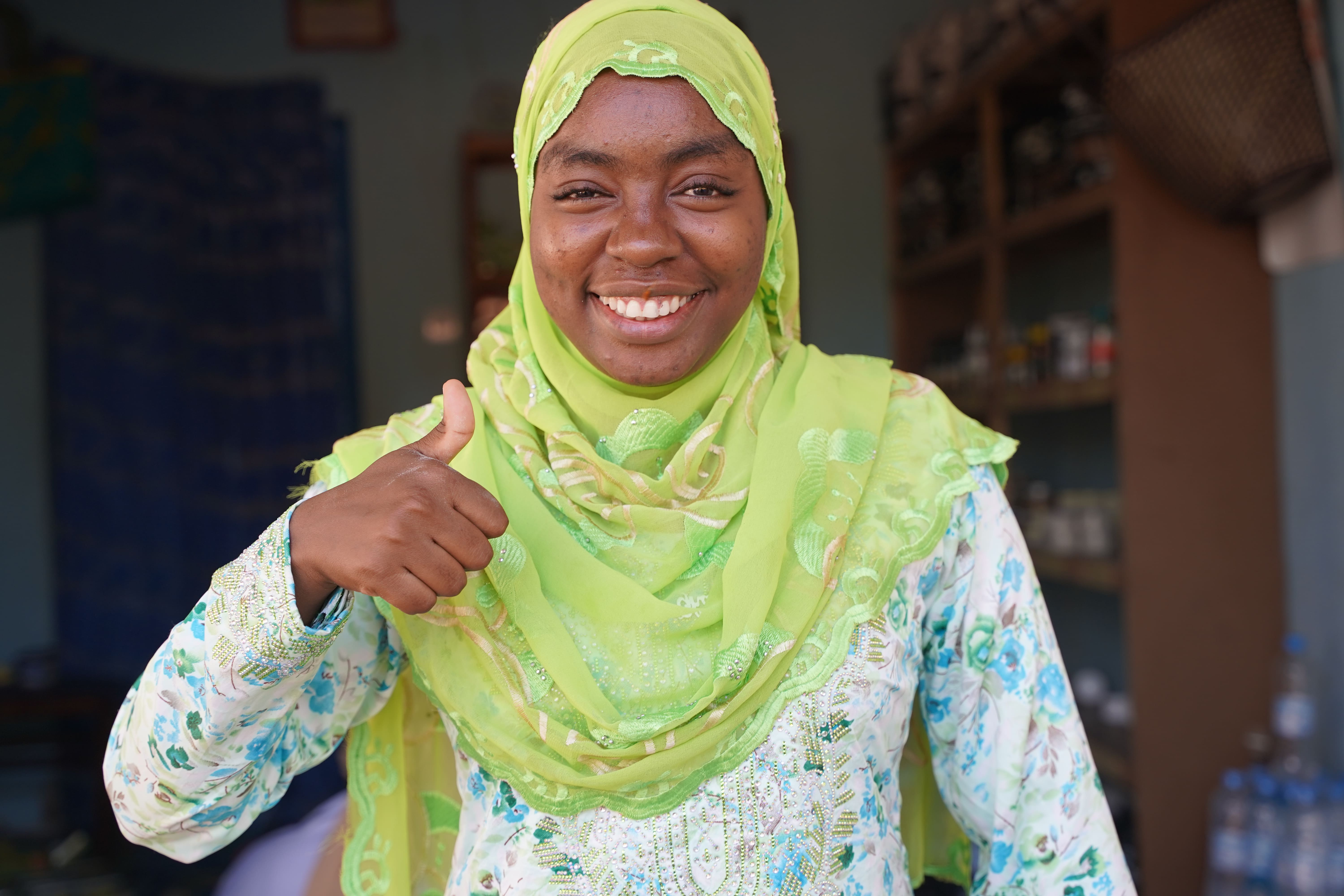

The group gained hands-on experience in measured proportions of different ingredients, time management, and preparation techniques. The cosmetics products, suitable for both face and body, use natural and available ingredients such as honey, cinnamon, and seaweed powder. They also learnt about seaweed soap and shower gel production, using ingredients like water, seaweed, rock salt, and SLES (Sodium Lauryl Ether Sulfate, a common surfactant in cleaning and personal care products.), with techniques to create quality products efficiently.
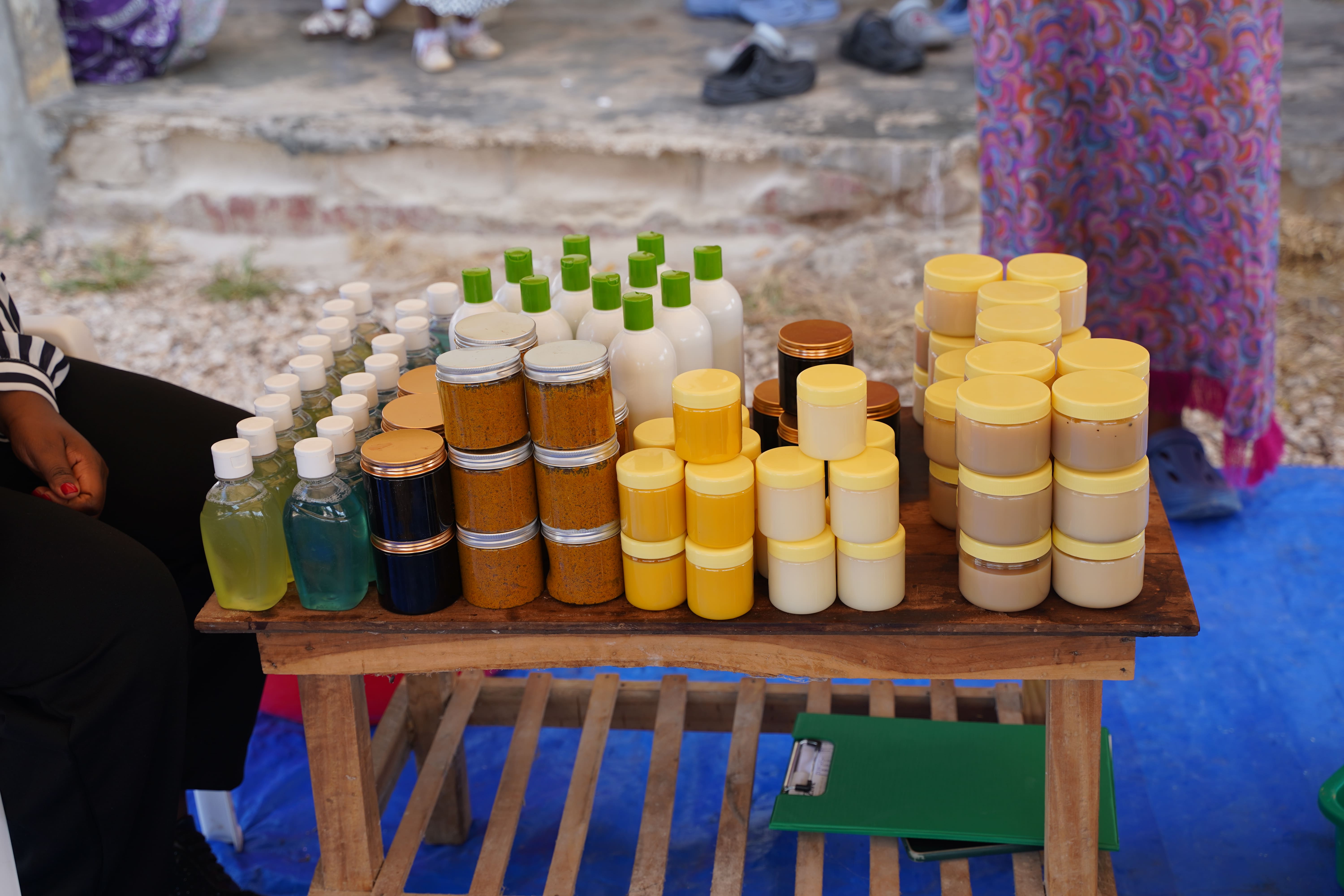
Later, the participants traveled to Kigamboni, Dar Es Salaam, to learn from SABRI KNOWS, the first company in Tanzania to use seaweed in baby food and the first East African participant in the Blue Economy Challenge. Sabri Ally Tillya, founder and CEO of the enterprise, taught the team how to prepare seaweed-based foods, including sea moss hot sauce, peanut butter, peanut fry, drinks, gel, and powder. By the end of the day, participants had gained practical skills in product creation, value addition, and market-ready techniques, opening a whole new world of opportunities for income generation.

Alessandra Naftal Nhaca, a 20-year-old member of the Tany Cooperative, reflected,
“I started working as a seaweed farmer last year, and I find it more rewarding than other forms of farming. While I haven’t earned anything yet, I’m eager to learn more and begin generating income from it. Today, I learned how to make a body scrub for both the face and body. It takes about an hour to make, and they sell it for five dollars. If we can produce this in our area, people will buy it, and it could become a source of income for me too.”
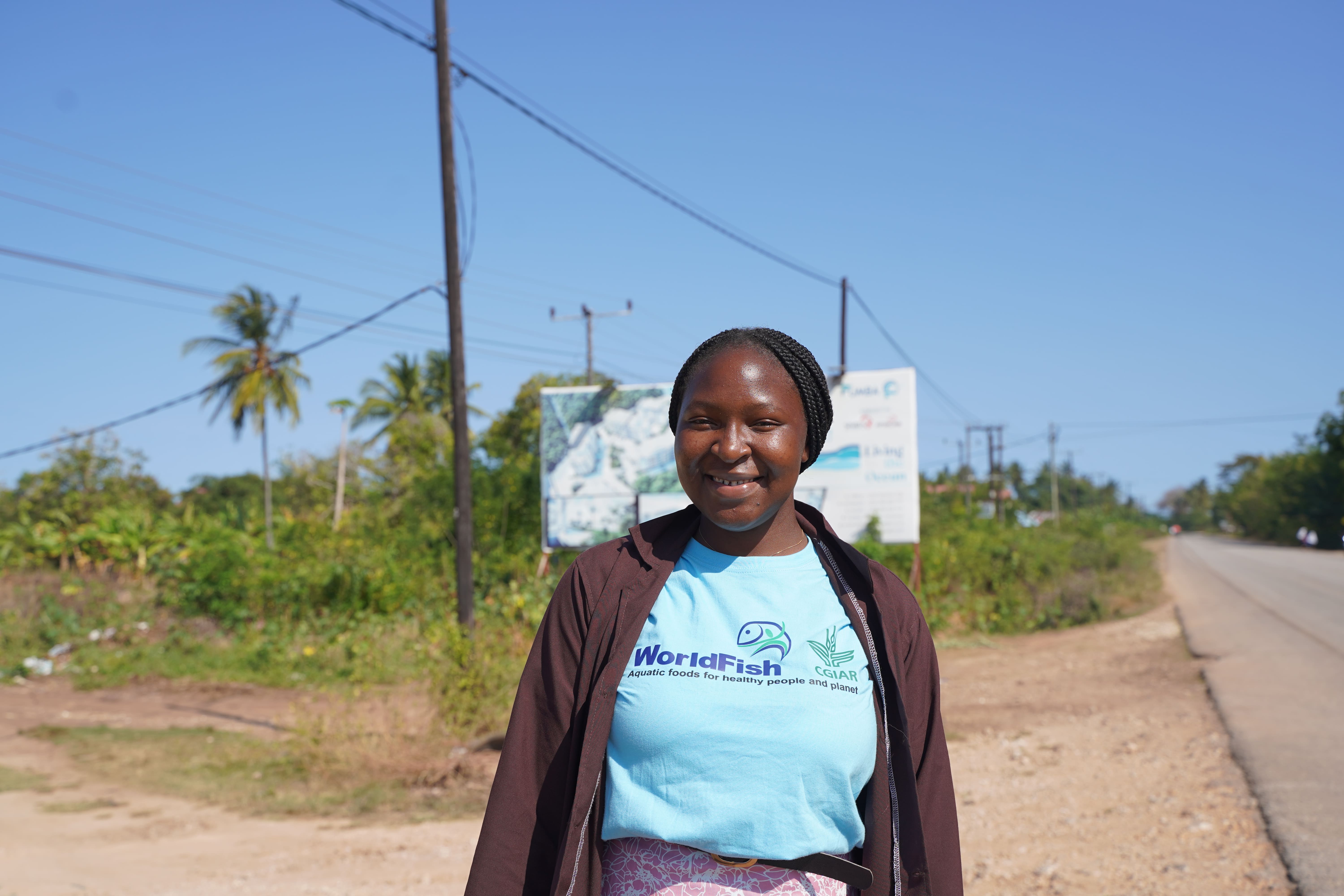
Seaweed Farming, Cooperative Management, and Gender Equality: Learning from experts
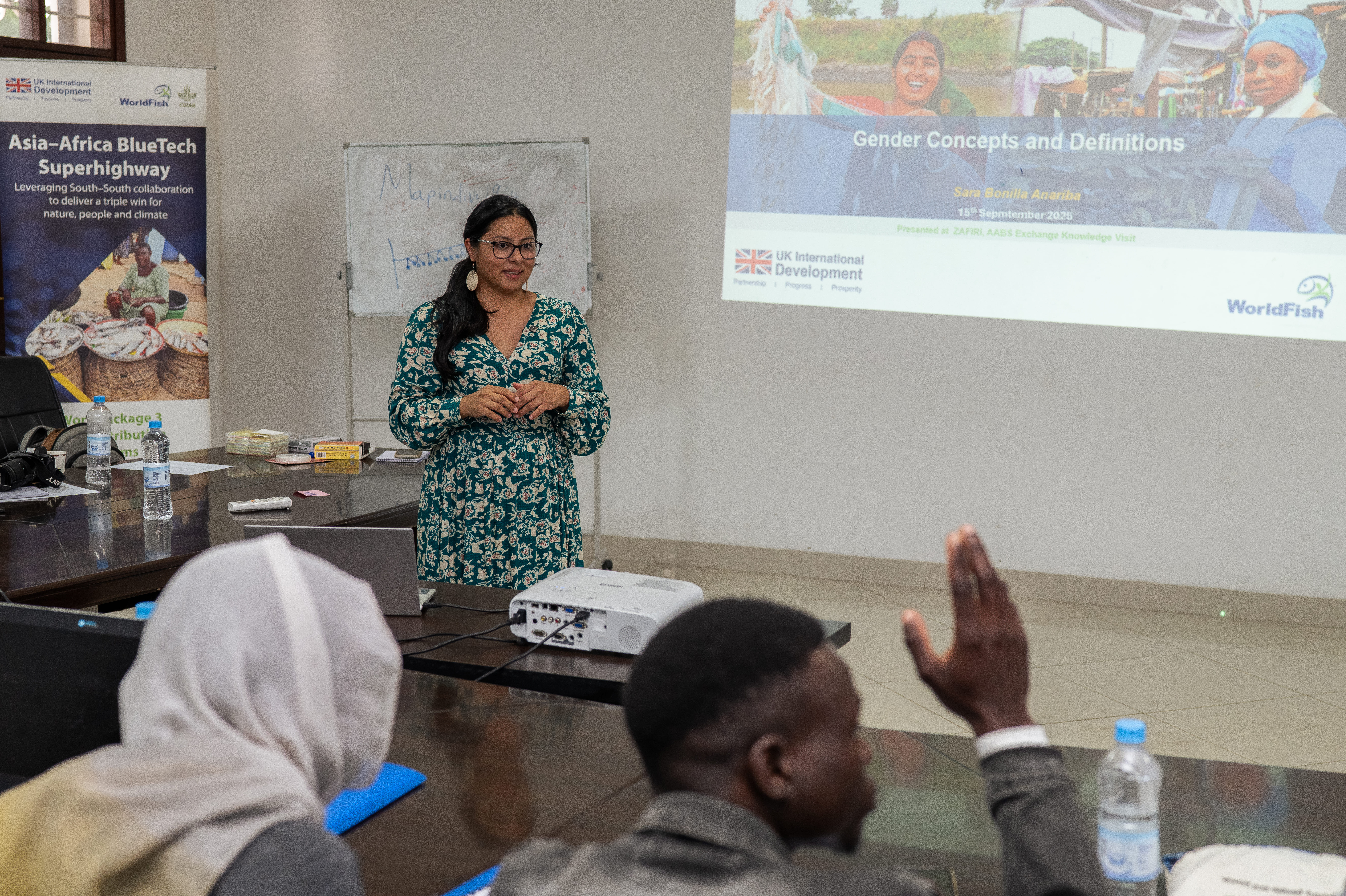
Tany Cooperative was also introduced to the Tanzanian seaweed farming industry. Jovice Mkuchu, Principal Fish Technologist at Zanzibar’s Fisheries Division, shared insights into quality control and marketing strategies. Haroun Ilyas Mohamed, Officer at the Cooperative Registrar Office, emphasized the importance of strong leadership and governance for cooperative success. Yussuf Salim, a researcher at the Zanzibar Fisheries and Marine Resources Research Institute, discussed farming methods, challenges like climate change, and the need for a seaweed processing industry. The day concluded with Sara Bonilla Anariba, Post Doctoral Fellow at WorldFish, elucidating gender roles, equality vs equity, and the critical role of gender inclusivity in the success of cooperatives.
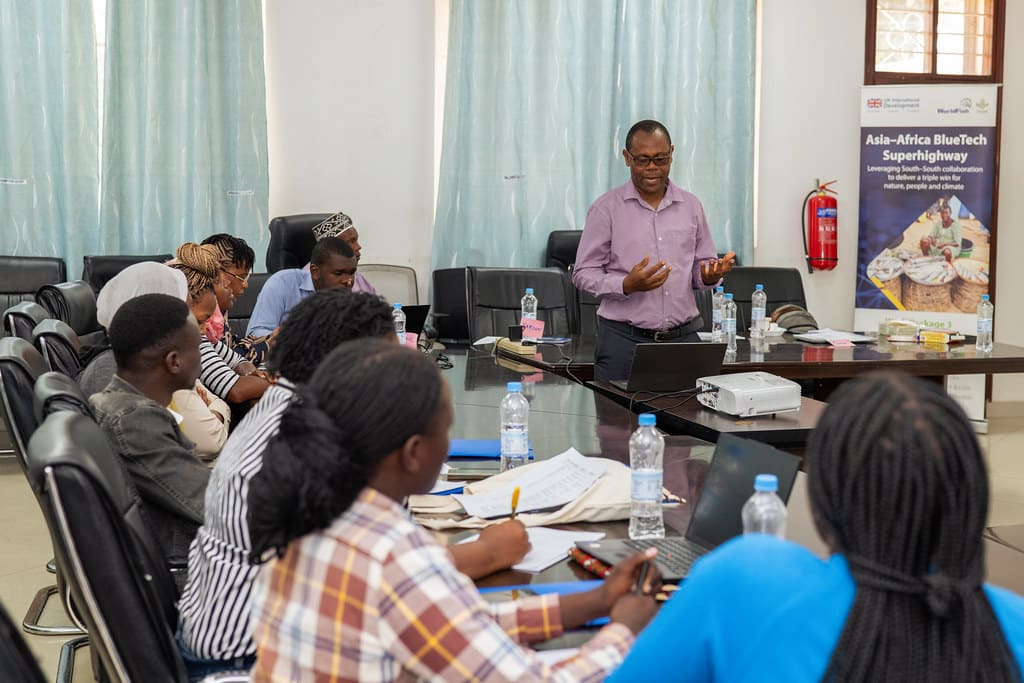
The Learning Visit: An Enriching Experience for Farmers and Officials Alike
Government representatives from Mozambique and Tanzania were part of the visit, observing and supporting the participants.
"This learning visit has provided us with invaluable knowledge and inspiration. I can see that the team is highly skilled, motivated, and eager to implement the insights, having already started using the products they created. If raw materials are available to produce this product based on macroalgae in Mozambique, we can substantially improve the cooperative's financial prospects, while also create business opportunities and facilitating the transfer of capabilities to acquire new skills,"
shared Kátia Torres Tomas, Head of the Department of Fish Technology and Fisheries Commercialization at IDEPA, IP Maputo Province, Mozambique.
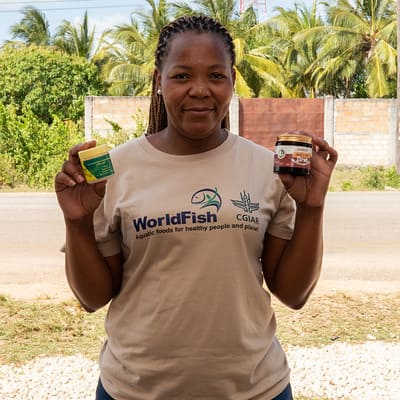
“I think this visit is much needed. Learning by being present, watching, and doing is the best way to learn. These young participants have great potential to absorb and apply the knowledge in Mozambique. This exchange benefits not only Mozambique but also Tanzania, as it helps expand and implement shared knowledge,”
said Jovice Mkuchu, Principal Fish Technologist for Quality Control and Marketing at the Fisheries Division, Tanzania.
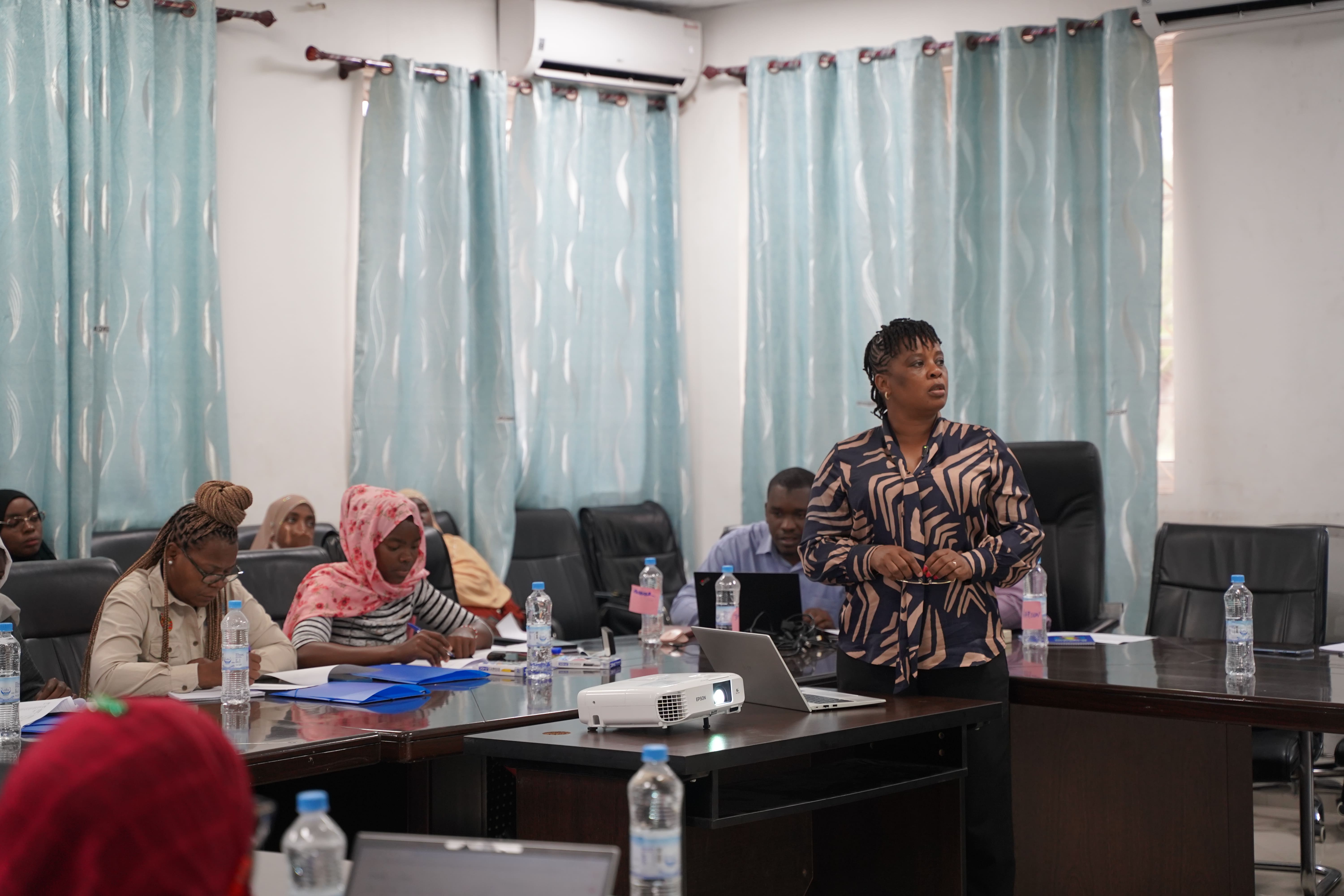
The visit was a lifetime opportunity for the women and youth of Inhaca, many of whom have never stepped out of their country. For 21-year-old Eliana Claudia Massinga, it was learning how to produce hair-nourishing food using proven natural ingredients like seaweed, neem, henna, coconut oil, SLES, cinnamon, and palm oil, left a mark.
“It’s a quick process, unlike the multi-use gel. Just imagine, on an island like mine, we’re making and selling these products all over Mozambique. Even the thought of it excites me!”
Turning Learnings into Action: A Three-Year Plan
The participants from Inhaca, Mozambique, have developed a three-year action plan for their cooperative, focusing on organizational development, production, and market strategies. Through this plan, they are setting clear goals to strengthen their cooperative structures, improve production processes, and expand market reach. By combining these strategies with their newly gained hands-on skills, they now have a practical roadmap to chart their own course for incomes, sustainable growth, innovation, and women-led entrepreneurship in remote coastal communities.


